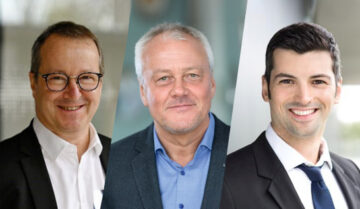Daniel Choquet is laureate of the ANR PRCI call 2024
Congratulations to Daniel Choquet (IINS), 2025 winner of the ANR call for projects for collaborative research – international (PRCI) coordinator of a Franco-German project.
Project
RECODE
Understanding synaptic complexity through the recoding of endogenous neuronal receptor complexes using genetic code expansion and genome editing
ANR/DFG PRCI 2024 “Franco-German”
Involved Laboratories:
- Daniel Choquet, French coordinator (IINS, CNRS Bordeaux Neurocampus, France)
- Markus Sauer/Gerti Beliu, German coordinators (Center for Biotechnology and Biophysics, Würzburg, Germany)
Project Summary and Impact
The RECODE project focuses on unraveling synaptic complexity using cutting-edge techniques such as genetic code expansion and genome editing. Specifically, it aims to study the diversity of AMPA receptor complexes, which are critical for rapid synaptic transmission and plasticity, through innovative bioorthogonal labeling and super-resolution imaging methods. Labeling the various components of receptor complexes remains particularly challenging with conventional techniques. Combining molecular biology and neuroimaging approaches, our work will enable nanoscale mapping of the dynamics and subcellular localization of these receptors in their native environment. By bringing together two teams of excellence, this project promises groundbreaking advances in determining the organizational dynamics of synaptic complexes, providing critical insights into the neuronal mechanisms underlying learning and memory.
Quality and Relevance of the Partnership
The partnership between Daniel Choquet’s team (France) and Markus Sauer/Gerti Beliu’s team (Germany) is built on exceptional complementarity and internationally recognized expertise. Choquet’s lab excels in studying the biology of synaptic receptors and neuronal mechanisms, while Sauer/Beliu’s team leads in the development and application of super-resolution imaging techniques and genetic code expansion labeling. This synergy enables the combination of innovative molecular approaches, including genome editing, with nanoscale imaging tools to study synaptic dynamics with unprecedented precision. Their previous successful collaboration highlights their ability to overcome technical challenges and achieve significant scientific breakthroughs. This Franco-German partnership, grounded in a shared vision and clear objectives, ensures an integrated, multidisciplinary approach to addressing fundamental questions about synaptic plasticity and function.

